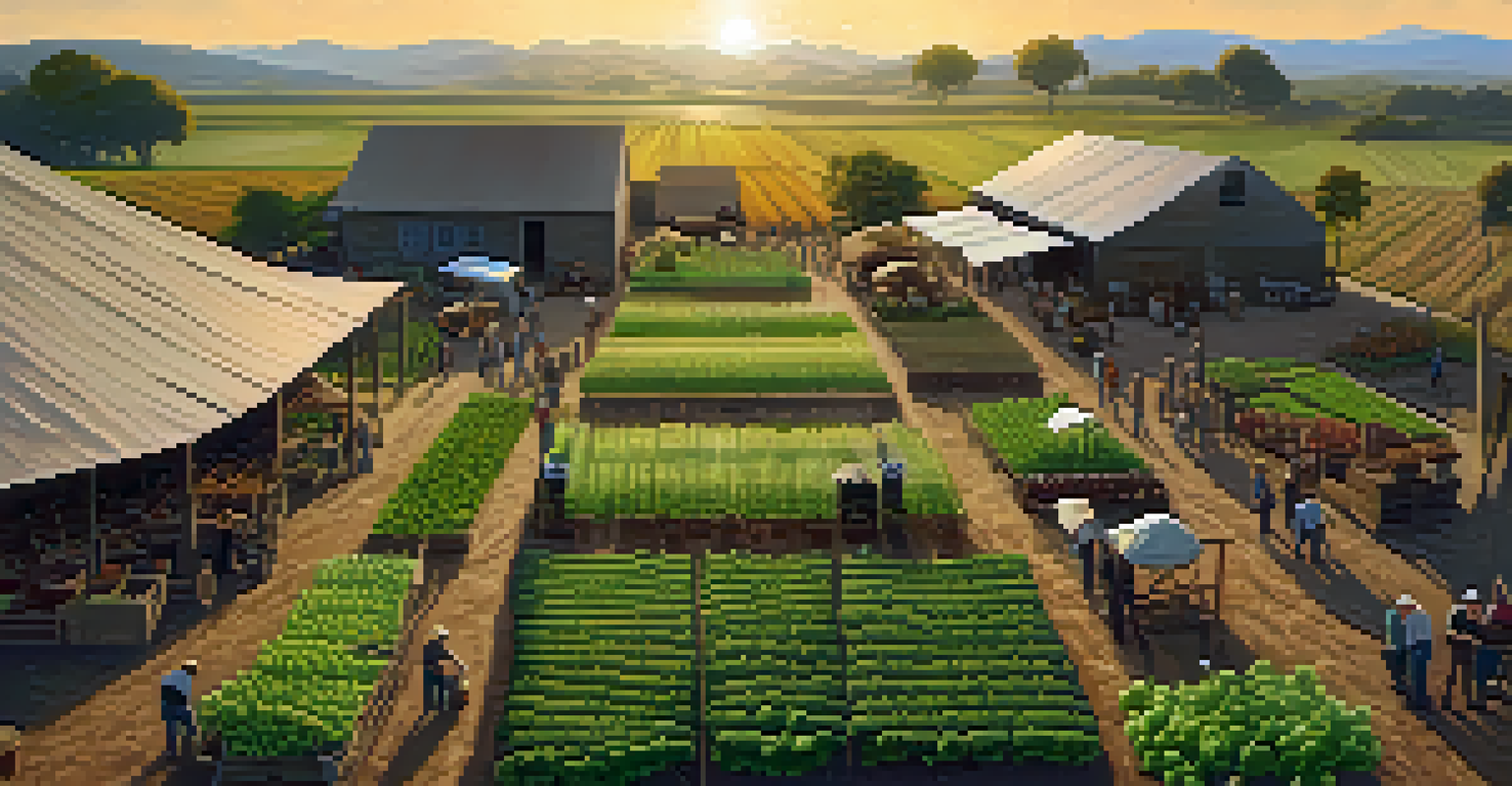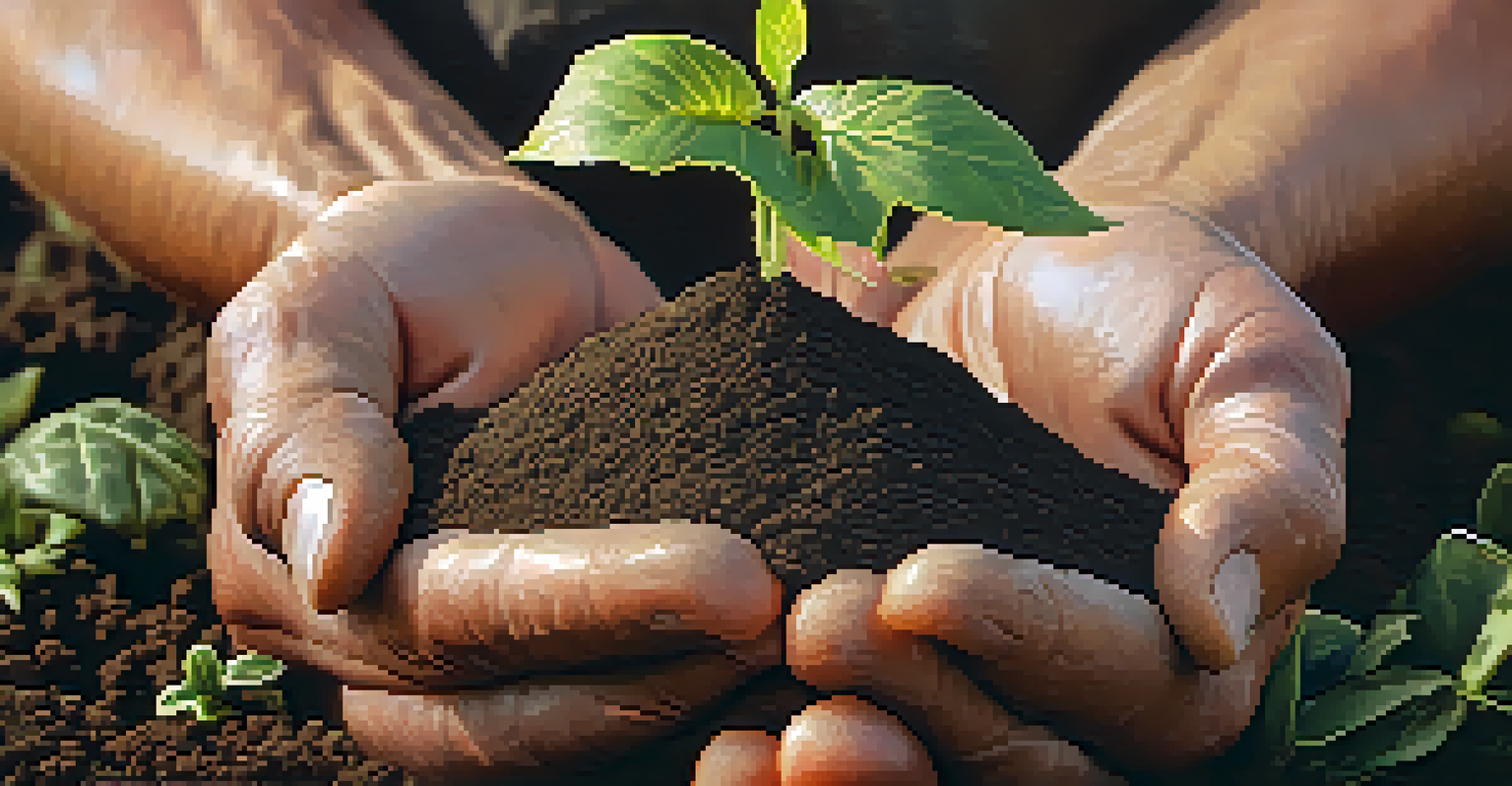Climate Impact on Kansas City and the Great Plains Agriculture

Understanding Climate Change and Its Local Effects
Climate change refers to long-term shifts in temperatures and weather patterns. These changes can be attributed to factors like increased greenhouse gas emissions. In Kansas City and the Great Plains, this phenomenon is leading to more unpredictable weather, impacting both farmers and residents alike.
Climate change is real, it is the most urgent threat facing our entire species, and we need to work collectively and stop procrastinating.
For instance, warmer temperatures can cause earlier springs and hotter summers, while extreme weather events like heavy rains and droughts are becoming more frequent. This variability can disrupt planting and harvesting schedules, creating uncertainty for farmers who rely on stable weather patterns.
Understanding these local effects is crucial for developing strategies that can help communities adapt. By recognizing how climate change impacts their daily lives, residents and farmers can take proactive measures to mitigate its effects.
The Economic Consequences of Climate Change
The economic implications of climate change extend far beyond just agriculture. In Kansas City, fluctuating weather patterns can lead to increased costs for farmers, affecting everything from crop yields to input prices. For instance, a drought can drastically reduce a farmer's harvest, leading to lower income and higher prices for consumers.

Moreover, the ripple effect can impact local economies that depend on agriculture. When farmers struggle, local businesses that support them—like equipment suppliers and grain elevators—may also face challenges, creating a cycle of economic downturn.
Climate Change Affects Local Weather
Kansas City and the Great Plains are experiencing more unpredictable weather patterns, impacting both farmers and residents.
To combat these economic consequences, farmers and policymakers must work together to implement sustainable practices. This collaboration can help cushion the economic blow of climate-related disruptions.
Shifts in Crop Viability Due to Climate Change
As climate conditions evolve, so do the types of crops that can thrive in the region. In the Great Plains, traditional crops like wheat and corn may face challenges due to rising temperatures and altered rainfall patterns. Farmers might find themselves needing to adapt by exploring alternative crops that are more resilient to these changes.
The greatest threat to our planet is the belief that someone else will save it.
For example, some farmers have started experimenting with drought-resistant varieties or even different types of grains altogether. This shift not only helps maintain yield but also promotes biodiversity, which can be beneficial for the ecosystem.
By embracing crop diversification, farmers can mitigate risks associated with climate change while still meeting the demands of consumers and markets.
Water Management Challenges in the Great Plains
Water scarcity is becoming a pressing issue in the Great Plains, particularly amid changing climate patterns. With unpredictable rainfall and increasing temperatures, managing water resources effectively is critical for agricultural sustainability. Farmers need to be strategic about irrigation practices to ensure they use water efficiently.
Innovative solutions like drip irrigation and rainwater harvesting are gaining popularity among farmers looking to conserve water. These techniques not only reduce water waste but also enhance crop health and yield.
Economic Impact on Agriculture
Fluctuating weather patterns lead to increased costs for farmers, which can create a ripple effect on local economies reliant on agriculture.
As water management becomes more critical, collaborations between agricultural experts and local governments will be vital. Together, they can develop policies and practices that safeguard water resources for future generations.
The Role of Technology in Adapting to Climate Change
Technology is playing a significant role in helping farmers adapt to the challenges posed by climate change. From advanced weather forecasting tools to precision agriculture, technology is transforming how farming is done. These innovations help farmers make informed decisions about planting, irrigation, and pest management.
For instance, using drones for crop monitoring can provide real-time data on plant health, allowing farmers to address issues before they escalate. This proactive approach not only boosts productivity but also minimizes resource waste.
As technology continues to evolve, its integration into farming practices will be crucial for resilience against climate variability. Farmers who embrace these advancements are likely to thrive in an increasingly uncertain climate.
Community Engagement in Agricultural Sustainability
Community involvement is essential when it comes to addressing climate change impacts on agriculture. Local organizations and agricultural groups can foster collaboration among farmers, scientists, and policymakers. This collective effort can lead to the development of sustainable practices that benefit the entire community.
For example, community workshops can educate farmers on sustainable farming techniques, such as crop rotation or cover cropping. These practices not only enhance soil health but also improve resilience against climate fluctuations.
Water Management is Crucial
As climate change causes water scarcity in the Great Plains, effective water management practices become essential for agricultural sustainability.
Engaging the community helps build a shared understanding of climate challenges, empowering individuals to take actionable steps. By working together, communities can create a more sustainable agricultural landscape.
Future Prospects: Adapting to a Changing Climate
Looking ahead, adapting to climate change will require ongoing efforts from farmers, researchers, and policymakers. The future of agriculture in Kansas City and the Great Plains hinges on the ability to innovate and adapt to new conditions. Continuous research into climate-resilient crops and sustainable farming practices will be crucial.
In addition, investment in infrastructure and technology will play a significant role in enabling farmers to thrive in a changing climate. This may involve upgrading irrigation systems, improving soil health, and enhancing market accessibility for diverse crops.

Ultimately, the goal is to foster a resilient agricultural system that can withstand the uncertainties of climate change. By embracing change and collaboration, the region can continue to produce vital crops while safeguarding the environment.